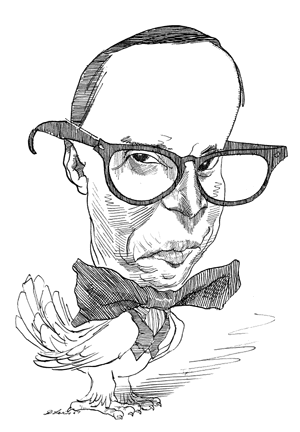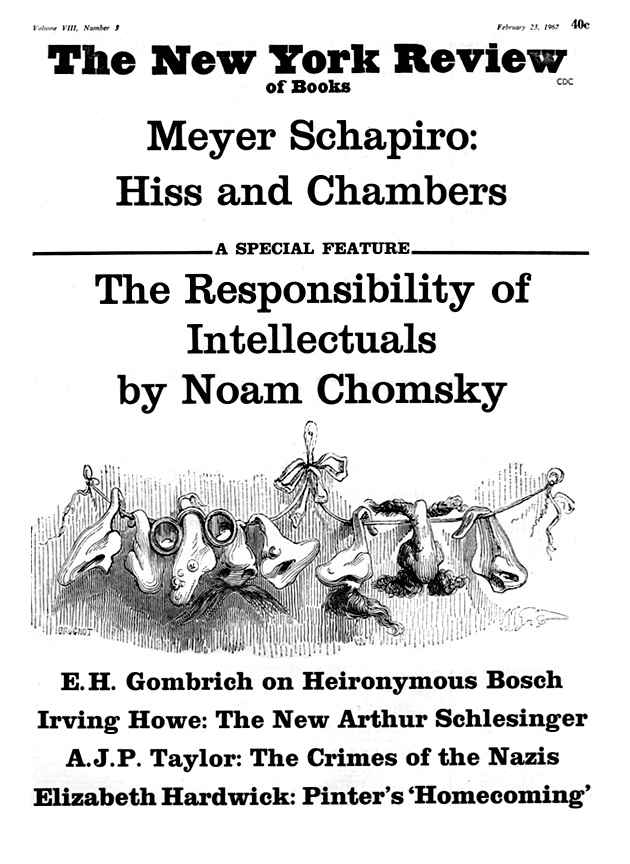Arthur Schlesinger has moved a considerable distance since the well-publicized symposium on Vietnam which the Theatre of Ideas held last year in New York. There his views struck me, and others, as unsettled. By contrast, his new book is a clear statement of opposition to the Johnson policy; and though it contains little in the way of fresh argument or evidence, the mere fact that Mr. Schlesinger has chosen to write it seems of political importance.
It is a book that falls uncomfortably between scholarship and journalism. For the minority of intellectuals actively aroused by the war and therefore likely to have read Fall and Lacouture, The Bitter Heritage has little to offer. But as a popular work it is also unsatisfying. If Mr. Schlesinger sees himself as trying to reach the large TV-soaked public which “supports” the war in a mood of sullen bewilderment, then he has not yet mastered the art of pamphleteering. For a pamphleteer must either stir up his own followers with inspiring rhetoric or, with a deep therapeutic patience, probe into and transform popular assumptions. Mr. Schlesinger does neither. Except when scowling at Dean Rusk he shows little anger and his argument is mostly directed toward those who accept the moderate reasonableness of his own brand of liberalism. He is, however, forthright enough: he urges “de-escalation” and an end to the bombing; he proposes negotiations with the NLF even though that may lead to unhappy consequences; he does not subscribe to Richard Goodwin’s view that the US should try to retake Vietcong-dominated territory “mile by painful mile.”
So it would not do to seem ungrateful. Mr. Schlesinger’s voice counts for something in this country, and at a time when the opposition to the war is in rather bad shape, his book should be welcomed. Better yet, it should be widely reprinted in paperback.
ANALYTICALLY, HOWEVER, it has serious drawbacks. One major omission has to do with the role of American liberalism in the Vietnam fiasco. Mr. Schlesinger implied that if President Kennedy had lived, things would have turned out better—a notion both impossible to refute and difficult to accept. There has been continuity of a kind in American foreign policy over the past twenty years, a continuity for which both conservative and liberal Presidents and Congressmen bear responsibility. Theodore Draper in his heavily documented article on Vietnam in the January Commentary makes it quite clear that President Kennedy, if with greater sophistication and hesitation, shared in the assumptions that led to the present full-scale military involvement. At the least, Mr. Schlesinger should have treated this matter with a fraction of the severity he reserves for other Presidents.
What is fundamental, however, is that nowhere does Mr. Schlesinger offer a serious criticism of the role of American liberalism in helping to prepare the ground for our Vietnam policy—neither as it subscribed to a facile version of “containment” nor as it allowed the valid principle of anti-Communism to be twisted and exploited for crude reactionary ends. I am not at all asking for the kind of screwball sloganeering which obsesses those academics who have discovered that liberalism is “the main enemy” in the United States or who have become infatuated with the notion of “agrarian reformers” in Asia; yet there is certainly room for severe criticism of the official or ada-type liberals in American politics these last few decades. And if Mr. Schlesinger were himself to risk that criticism, he might do liberalism an enormous service. (The sad figure of Hubert Humphrey barely appears in these pages, though that may be due more to charity than policy.)
Nor does Mr. Schlesinger seriously discuss the nature of the opposition to the Johnson policy that has been provided by the Senate liberals. In my own view, the Senatorial opposition has fallen down badly because it has confined itself to semi-private hand-wringing, brief committee hearings, and occasional speeches; it has failed to mount a public campaign, the kind of barn-storming that used to characterize the work of earlier generations of liberals; it has refused to go to the people. If Senators Kennedy and Fulbright thought in terms of arousing and mobilizing public opinion, the peace movement might not be in its present doldrums. Mr. Schlesinger has himself shared in this kind of reticence. On a number of occasions, including the Theatre of Ideas symposium in New York, he pooh-poohed the value of public demonstrations and protests. As I recall, he and I got into a sharp disagreement at the Theatre of Ideas meeting on the value of the student protests which helped set other forces into motion; I wonder whether he would still maintain the same opinion.
RIGHT NOW, the situation seems worse than it has been for several years. On the one side, the Administration has hardened in relation to critics, apparently persuaded they do not carry much weight—or deliver many votes—in the country. The appointment of the egregious John P. Roche as the President’s advisor on intellectual affairs is a sufficient sign of official contempt. On the other side, the intellectual opposition seems to be succumbing to weariness and despair—it lacks experience in sustained politics—and occasionally to be slipping into cocktail-party Schadenfreude, reinforced by a study of Macbird, about the style of the President.
Advertisement
Mr. Schlesinger does say a few words about the way in which the war is poisoning our domestic life; they are good words too, but not sharp enough. What bureaucrats and journalists call the “credibility gap” means, in plain English, a policy of telling lies. And in the long run this may be the worst aspect of the war crisis: that the Department of State and other Washington agencies feel it possible or necessary to treat the American people as if they were a mere collection of saps. Yet, at the same time, this reprehensible policy is not even carried through with much skill or conviction, for the official apologists seem quite aware that in a few weeks their misstatements are likely to be exposed. Seldom, indeed, have the shame and glory of democratic politics been so strangely, even cruelly, joined: contemptuous deceit in public speech together with a praiseworthy readiness to allow an editor of the country’s most influential newspaper to go to Hanoi and there undermine official claims.
The Johnson regime is creating the kind of poisonous cynicism which spread across the United States after the Korean war and in France during the Algerian war. Mr. Schlesinger clearly notes the parallel, but I wish he would occasionally lose his cool in reacting to it.
This Issue
February 23, 1967



